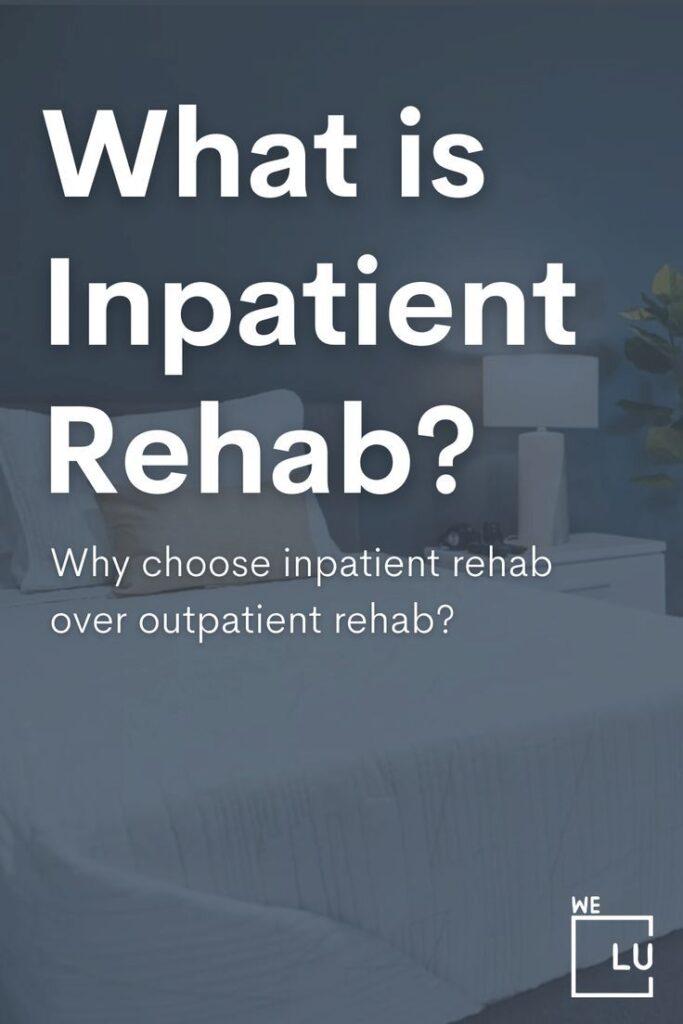What Are Cyclobenzaprine And Ibuprofen?
Cyclobenzaprine is a muscle relaxant commonly prescribed to relieve muscle spasms, stiffness, and pain associated with musculoskeletal conditions, such as strains and sprains. It affects certain chemicals in the brain, helping relax muscles and reduce discomfort. Cyclobenzaprine is typically taken orally and is available in tablet or extended-release capsule form.
Ibuprofen is a nonsteroidal anti-inflammatory drug (NSAID) widely used to alleviate pain, reduce inflammation, and lower fever. It belongs to a class of medications known for their analgesic and anti-inflammatory properties. Ibuprofen is commonly used for various conditions, including headaches, toothaches, menstrual cramps, and mild to moderate musculoskeletal pain. It is available over the counter and in prescription-strength forms, such as tablets or capsules.
Both cyclobenzaprine and ibuprofen are widely recognized medications that can relieve different types of pain, but they function in distinct ways and target different aspects of discomfort.
Can You Take Ibuprofen With Cyclobenzaprine?
While taking ibuprofen and cyclobenzaprine separately is generally safe, combining them can pose certain dangers and should be done cautiously. Here are some important considerations:
- Increased Sedation: Both cyclobenzaprine and ibuprofen can cause drowsiness as a side effect. When taken together, their sedative effects may be enhanced, leading to excessive drowsiness, impaired coordination, and difficulty concentrating. This can increase the risk of accidents or falls, especially in activities that require alertness, such as driving or operating heavy machinery.
- Central Nervous System (CNS) Depression: Combining cyclobenzaprine and ibuprofen may lead to CNS depression. This can cause a slowdown in brain function, resulting in symptoms like slowed breathing, decreased heart rate, and even loss of consciousness. This risk is higher in individuals who are elderly, have underlying medical conditions, or take other medications that affect the CNS.
- Increased Gastrointestinal (GI) Side Effects: Both cyclobenzaprine and ibuprofen can irritate the lining of the stomach and increase the risk of gastrointestinal complications like stomach ulcers, bleeding, and perforation. Taking them together may further exacerbate these risks, particularly if you have a history of GI issues or are prone to stomach-related problems.
- Drug Interactions: Cyclobenzaprine and ibuprofen may interact with other medications you are taking, such as antidepressants, sedatives, or blood thinners. These interactions can result in adverse effects, including increased side effects or reduced medication effectiveness.
It is crucial to consult with a healthcare professional or pharmacist before combining cyclobenzaprine and ibuprofen to assess the potential risks, consider alternative options, or adjust the dosage accordingly. They can provide personalized advice based on your medical history and current medications to ensure your safety and optimize the pain management approach.

Skip To:
Learn More:
Get Help. Get Better. Get Your Life Back.
Searching for Accredited Drug and Alcohol Rehab Centers Near You?
Even if you have failed previously and relapsed, or are in the middle of a difficult crisis, we stand ready to support you. Our trusted behavioral health specialists will not give up on you. When you feel ready or just want someone to speak to about therapy alternatives to change your life call us. Even if we cannot assist you, we will lead you to wherever you can get support. There is no obligation. Call our hotline today.
(844) 597-1011Popular Cyclobenzaprine And Ibuprofen FAQs
-
Can I Take Ibuprofen With Cyclobenzaprine?
While taking ibuprofen and cyclobenzaprine separately is generally safe, combining them can pose risks. It is advisable to consult with a healthcare professional or pharmacist before taking them together to assess potential interactions and determine the appropriate dosage.
-
Why Do People Take Flexeril And Ibuprofen Together?
People may take cyclobenzaprine (Flexeril) and ibuprofen together to manage pain that involves both muscle discomfort and inflammation. Cyclobenzaprine is a muscle relaxant, while ibuprofen is an anti-inflammatory drug. Combining them can provide a more comprehensive approach to pain relief, targeting both muscle spasms and inflammation.
-
Can You Take 600mg Ibuprofen With Cyclobenzaprine Without Getting High?
When taken as prescribed and at recommended doses, it is unlikely to experience a “high” sensation from combining 600mg ibuprofen with cyclobenzaprine. Both medications are typically used for therapeutic purposes and are not known to produce euphoric effects when taken appropriately.
-
Can I Take Ibuprofen With Cyclobenzaprine 10 Mg Safely?
Taking ibuprofen with a 10 mg dose of cyclobenzaprine can be safe for some individuals, but it is essential to consult a healthcare professional or pharmacist to ensure safety. They can assess your medical history, current medications, and potential interactions to determine the appropriate dosage and ensure your well-being.
Cyclobenzaprine Addiction Facts
Cyclobenzaprine Addiction Overview
Flexeril (cyclobenzaprine) is a muscle relaxant commonly prescribed to alleviate muscle spasms and discomfort associated with musculoskeletal conditions. While Flexeril is not considered highly addictive, it can still lead to dependence and abuse if not used as directed.
Prolonged or misused Flexeril can result in withdrawal symptoms and other adverse effects. Individuals need to follow their healthcare provider’s instructions, use the medication as prescribed, and communicate any concerns or changes in symptoms promptly. Consulting a healthcare professional is crucial for proper guidance and monitoring when using Flexeril to minimize the risk of addiction.
Cyclobenzaprine Addiction Signs
- Increasing Tolerance: Individuals may develop a tolerance to Flexeril over time, requiring higher doses to achieve the desired effects. This can be an indication of addiction.
- Continued Use Despite Negative Consequences: Despite experiencing adverse effects on physical health, relationships, work, or other areas of life, individuals may continue to use Flexeril compulsively.
- Preoccupation with Flexeril: An individual addicted to Flexeril may spend significant time obtaining the drug, using it, or thinking about it. This preoccupation can interfere with daily responsibilities and activities.
- Loss of Control: People with a Flexeril addiction often find controlling or limiting their drug use challenging. They may have unsuccessful attempts to cut down or quit using Flexeril.
- Withdrawal Symptoms: When attempting to stop or reduce the use of Flexeril, individuals may experience withdrawal symptoms such as muscle aches, restlessness, irritability, anxiety, insomnia, sweating, and nausea.
- Neglecting Other Activities: As Flexeril becomes the primary focus, individuals may neglect activities they previously enjoyed, or that were important to them, such as hobbies, socializing, or work commitments.
Cyclobenzaprine Addiction Treatment
Flexeril addiction treatment typically involves a comprehensive approach that addresses both addiction’s physical and psychological aspects. Here are some common treatment options:
- Medical Detoxification: If an individual has developed a dependence on Flexeril, a medically supervised detoxification process may be necessary to manage withdrawal symptoms safely. Medical professionals can gradually taper the dosage during this phase to minimize discomfort and ensure a safe transition.
- Behavioral Therapy: Various forms of therapy, such as cognitive-behavioral therapy (CBT), can be beneficial in treating Flexeril addiction. These therapies help individuals identify and modify unhealthy thoughts, behaviors, and triggers associated with drug use and develop effective coping strategies.
- Support Groups: Participating in support groups, such as Narcotics Anonymous (NA), can provide individuals with a sense of community, understanding, and encouragement. Sharing experiences and learning from others who have overcome addiction can be instrumental in the recovery process.
- Individual Counseling: Individual counseling sessions with a qualified therapist or counselor can provide a safe and confidential space to explore underlying issues that may have contributed to drug abuse. These sessions can help individuals develop healthier coping mechanisms and gain insights into their addiction.
- Dual Diagnosis Treatment: If a co-occurring mental health disorder is present alongside Flexeril addiction, integrated treatment that addresses both conditions simultaneously is crucial. This approach ensures that individuals receive comprehensive care for their physical and psychological well-being.
- Medication-Assisted Treatment (MAT): In some cases, medications may be used as part of a comprehensive treatment plan to help manage cravings and withdrawal symptoms. However, there are no specific medications approved for treating Flexeril addiction, so the use of medications would be based on individual circumstances and the presence of other substances.
Cyclobenzaprine Addiction Statistics
Understanding the scope and impact of Flexeril (cyclobenzaprine) addiction is essential for addressing this issue. By examining Flexeril addiction statistics, we can gain insights into the prevalence, trends, and consequences associated with the misuse and abuse of this medication. These statistics shed light on the challenges faced by individuals and communities affected by Flexeril addiction, highlighting the need for awareness, prevention, and effective treatment strategies.
0.2%
Approximately 0.2% of individuals aged 12 and older in the United States reported misusing cyclobenzaprine (the generic name for Flexeril) in 2018.
Source: SAMHSA
2003 to 2015
JAMA Network Open found that the misuse of muscle relaxants, including cyclobenzaprine, increased significantly during this period.
Source: JAMA Network Open
79.1%
From 2004 to 2015, cyclobenzaprine-related emergency department visits increased by 79.1%.
Source: Journal of Addiction Medicine

Get Your Life Back
Find Hope & Recovery. Get Safe Comfortable Detox, Addiction Rehab & Dual Diagnosis High-Quality Care.
Hotline(844) 597-1011
Are Flexeril And Ibuprofen For Back Pain?
Yes, both Flexeril (cyclobenzaprine) and ibuprofen can be used to alleviate back pain.
Flexeril is a muscle relaxant commonly prescribed to relieve muscle spasms and stiffness associated with back pain. It affects certain chemicals in the brain, helping to relax the muscles and reduce discomfort. Back pain often involves muscle tension or spasms, and Flexeril can help provide relief by targeting these specific symptoms.
On the other hand, Ibuprofen is a nonsteroidal anti-inflammatory drug (NSAID) that can reduce inflammation and relieve pain. Back pain can be caused by inflammation in the back muscles, ligaments, or joints. Ibuprofen works by inhibiting the production of certain chemicals called prostaglandins, which play a role in the inflammatory process. By reducing inflammation, ibuprofen can help alleviate both the pain and inflammation associated with back pain.
Flexeril and ibuprofen can provide a more comprehensive approach to managing back pain when used together. Flexeril helps to relax the muscles and relieve muscle spasms, while ibuprofen targets the inflammation contributing to the pain. This combination can be particularly effective for individuals who experience muscle-related pain and back inflammation.
It is important to note that while these medications can temporarily relieve back pain, they do not address the underlying cause. If you are experiencing persistent or severe back pain, it is recommended to consult with a healthcare professional for a proper diagnosis and appropriate treatment plan. They can help identify the underlying cause of your back pain and recommend a comprehensive approach to manage it effectively, which may include a combination of medication, physical therapy, exercise, or other interventions.
First-class Facilities & Amenities
World-class High-Quality Addiction & Mental Health Rehabilitation Treatment
Rehab Centers TourRenowned Addiction Centers. Serene Private Facilities. Inpatient rehab programs vary.
Addiction Helpline(844) 597-1011Proven recovery success experience, backed by a Team w/ History of:
15+
Years of Unified Experience
100s
5-Star Reviews Across Our Centers
10K
Recovery Success Stories Across Our Network
- Low Patient to Therapist Ratio
- Onsite Medical Detox Center
- Comprehensive Dual-Diagnosis Treatment
- Complimentary Family & Alumni Programs
- Coaching, Recovery & Personal Development Events
Ibuprofen And Cyclobenzaprine Interactions
When considering the interactions between ibuprofen and cyclobenzaprine, it’s crucial to understand that these medications can potentially interact with each other and other substances. Here are some important points to consider:
- Increased Sedation: Both ibuprofen and cyclobenzaprine can cause drowsiness as a side effect. Taking them together may enhance the sedative effects, leading to excessive drowsiness, impaired coordination, and difficulty concentrating. It is advisable to avoid activities that require alertness, such as driving or operating machinery, if you experience increased sedation.
- Central Nervous System (CNS) Depression: Combining ibuprofen and cyclobenzaprine may result in CNS depression. This can cause a decrease in brain function, leading to symptoms such as slowed breathing, decreased heart rate, and even loss of consciousness. Individuals who are elderly, have underlying medical conditions or take other medications that affect the CNS are at a higher risk of experiencing CNS depression.
- Gastrointestinal (GI) Effects: Both ibuprofen and cyclobenzaprine can irritate the stomach lining and increase the risk of gastrointestinal complications such as stomach ulcers, bleeding, and perforation. Taking them together may further exacerbate these risks, especially if you have a history of GI issues or are prone to stomach-related problems. Taking these medications with food or a stomach protectant is recommended to minimize the risk of GI side effects.

- Drug Interactions: Ibuprofen and cyclobenzaprine may interact with your other medications. For example, combining them with certain antidepressants, sedatives, or blood thinners can increase the risk of adverse effects or reduce the effectiveness of either medication. To assess potential interactions, you must inform your healthcare provider about all the medications, including over-the-counter drugs and supplements, you are currently taking.
To ensure your safety and optimize the effectiveness of your treatment, it is essential to consult with a healthcare professional or pharmacist before combining ibuprofen and cyclobenzaprine. They can provide personalized advice based on your medical history, current medications, and specific circumstances to minimize the risk of interactions and determine the most appropriate dosage and treatment plan for your needs.
World-class, Accredited, 5-Star Reviewed, Effective Addiction & Mental Health Programs. Complete Behavioral Health Inpatient Rehab, Detox plus Co-occuring Disorders Therapy.
CALL(844) 597-1011End the Addiction Pain. End the Emotional Rollercoaster. Get Your Life Back. Start Drug, Alcohol & Dual Diagnosis Mental Health Treatment Now. Get Free No-obligation Guidance by Substance Abuse Specialists Who Understand Addiction & Mental Health Recovery & Know How to Help.
We Level Up Cyclobenzaprine High Dual Diagnosis Treatment
We Level Up is a highly regarded rehabilitation center renowned for its comprehensive methods in assisting individuals struggling with addiction to Cyclobenzaprine and co-occurring mental health conditions. Recognizing the intricate interplay between addiction and mental well-being, the treatment program at We Level Up integrates evidence-based therapies, expert medical care, and a holistic perspective to deliver a well-rounded and effective path toward recovery.
At We Level Up, the treatment approach encompasses diverse therapeutic techniques. Through individual counseling, individuals are provided with a supportive space to delve into the underlying causes of their addiction and address any emotional issues contributing to their struggles. Group therapy fosters a sense of camaraderie as individuals connect with others who have gone through similar experiences, enabling them to share insights and learn from one another’s journeys.
Behavioral therapies equip individuals with healthy coping mechanisms and valuable skills to manage cravings and triggers. Also, medication management may be incorporated into a comprehensive treatment plan when appropriate.
Experience Transformative Recovery at We Level Up Treatment Centers.
See our authentic success stories. Get inspired. Get the help you deserve.
Start a New Life
Begin with a free call to an addiction & behavioral health treatment advisor. Learn more about our dual-diagnosis programs. The We Level Up Treatment Center Network delivers recovery programs that vary by each treatment facility. Call to learn more.
- Personalized Care
- Caring Accountable Staff
- World-class Amenities
- Licensed & Accredited
- Renowned w/ 100s 5-Star Reviews
We’ll Call You
Watch The Prescription Drug Abuse & Prescription Medication Addiction Recovery & Sobriety Story Informative Video
Video Script
“I wanted my life back. I was a shell of a person. I wanted to be trusted; I wanted relationships back that I lost, mainly my children and family. It started innocent enough, I got into a car accident, and then I got sucked into the whole, you know, medication issue with the pills. And before I knew it, I was in a cloud. I was sucked in by addiction, and with my mind, I kept thinking it was OK because a doctor was prescribing this for me, a doctor was giving me this, a doctor was giving me that.
So, I didn’t think I was doing anything wrong. Level Up supports my family and my relationships with my family, and they’ve helped me grow as a person. When I first started there, I was so intimidated and scared, you know? But, they’ve taught me, they’ve taught me how to come into my own. And then, you know, when I get the call from my twenty-one-year-old daughter in the middle of the day, to say ‘I love you, Mom.’ that’s amazing.”
Jen’s Addiction Recovery Testimonial.
Search We Level Up Cyclobenzaprine And Ibuprofen Resources
Sources
- National Institute on Drug Abuse (NIDA) – Prescription Drug Misuse and Abuse: https://www.drugabuse.gov/publications/research-reports/misuse-prescription-drugs/overview
- Substance Abuse and Mental Health Services Administration (SAMHSA) – Prescription Drug Misuse and Abuse: https://www.samhsa.gov/
- U.S. Food and Drug Administration (FDA) – Drug Safety and Availability: Cyclobenzaprine Information: https://www.fda.gov/
- Centers for Disease Control and Prevention (CDC) – Prescription Opioid Overdose Data: https://www.cdc.gov/
- National Library of Medicine (NLM) – MedlinePlus: Cyclobenzaprine: https://medlineplus.gov/druginfo/meds/a682514.html
- National Institute on Drug Abuse (NIDA) – Principles of Drug Addiction Treatment: A Research-Based Guide: https://www.drugabuse.gov/publications/principles-drug-addiction-treatment-research-based-guide-third-edition
- National Institutes of Health (NIH) – National Institute on Drug Abuse (NIDA) – Treatment Approaches for Drug Addiction: https://www.drugabuse.gov/publications/drugfacts/treatment-approaches-drug-addiction
- SAMHSA – Find Treatment: https://www.samhsa.gov/find-treatment
- National Alliance on Mental Illness (NAMI) – Substance Use Disorders: https://www.nami.org/About-Mental-Illness/Common-with-Mental-Illness/Substance-Use-Disorders
- Office of National Drug Control Policy (ONDCP) – Prescription Drugs: https://www.whitehouse.gov/


